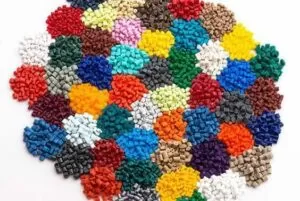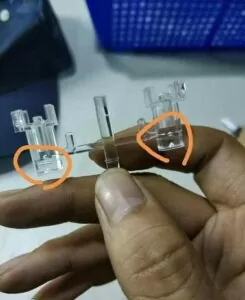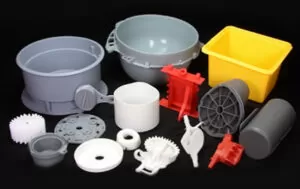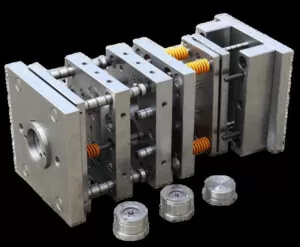Introduction
Injection molding is a widely utilized manufacturing method that plays a significant role in various industries. It involves injecting molten plastic into a mold cavity, allowing for the creation of complex and precise plastic components and products. This process is known for its efficiency, speed, and ability to produce high volumes of parts with excellent repeatability.
In recent years, there has been a growing emphasis on sustainable manufacturing practices and reducing environmental impact. As a result, the incorporation of recycled materials in injection molding processes has gained considerable attention. Recycling plastic waste to create new products aligns with the principles of the circular economy and reduces the reliance on virgin materials.
While the idea of utilizing recycled materials in injection molding holds great promise, it is not without its challenges. These challenges stem from the unique properties and characteristics of recycled materials, as well as the requirements of the injection molding process itself. Understanding and overcoming these challenges are vital to effectively harnessing the potential of recycled materials in the injection molding industry.
In this article, we will delve into the challenges associated with injection molding using recycled materials. We will explore the material variability, contamination and impurities, material degradation, and design limitations that manufacturers encounter when working with injection molding machines with recycled plastics. By understanding these challenges, we can explore strategies and solutions to overcome them, enabling the successful integration of recycled materials in injection molding processes.

II. Challenges of Injection Molding with Recycled Materials
A. Material Variability
Recycled plastics exhibit a significant degree of variability in terms of their composition and quality. Unlike virgin materials that are produced with specific formulations, recycled plastics are derived from various sources, such virgin material such as post-consumer waste or industrial scrap. This variability results in differences in the chemical makeup, molecular structure, and physical properties of the recycled materials.
The material variability poses challenges in achieving consistent results during the injection molding process. Properties like melt flow rate, viscosity, and mechanical strength can vary across different batches of recycled plastics. These variations can impact the flow behavior of the molten plastic, affecting the mold filling process, part quality, and overall product performance.

B. Contamination and Impurities
Recycled materials, including recycled plastics, often contain contaminants and impurities. These contaminants can include residual additives, dyes, and foreign particles present in the original plastic waste. During the recycling process, it is challenging to completely eliminate these impurities, resulting in the presence of undesirable elements in the recycled materials.
Contamination and impurities in injection moulding with recycled plastics can have adverse effects on material performance and the final quality of the molded products. They can cause defects, such as surface imperfections, voids, and weakened mechanical properties. Controlling and minimizing contamination becomes crucial to ensure the desired product quality in injection molding with recycled materials.
C. Material Degradation
One of the challenges associated with recycled materials is material degradation. The process of recycling involves subjecting the plastic waste to repeated heating and cooling cycles, which can lead to molecular degradation. This degradation affects the polymer chains, resulting in a reduction in mechanical properties and performance of the recycled plastics.
Material degradation impacts properties like tensile strength, impact resistance, and thermal stability. As a result, the mechanical integrity and overall quality of the molded plastic products used can be compromised. Managing material degradation is crucial to ensure that the recycled plastics maintain the necessary properties required for the intended applications.

D. Design Limitations
Designing plastic components with recycled materials can present certain limitations. Recycled plastics may exhibit different shrinkage rates, flow characteristics, and dimensional stability compared to virgin materials. These variations can affect the part molding scrap filling process, part ejection, and dimensional accuracy.
Addressing design limitations involves understanding and adapting to the specific properties of recycled plastics. It may require modifications in the mold design, gating systems, and processing parameters to accommodate the unique behavior of recycled materials. By overcoming these design challenges, manufacturers can ensure successful injection molding of plastic components using recycled materials, achieving the desired functionality and quality.
III. Feasibility of Using Recycled Plastics in Injection Molding
Can recycled plastics be used in injection molding? The answer is yes, but it requires careful consideration and implementation of specific measures to ensure successful integration. Here are some key factors to consider:
1.Thorough Material Testing, Characterization, and Optimization: To effectively use recycled plastics in injection molding, it is crucial to conduct thorough material testing and characterization. This involves evaluating the properties and behavior of the recycled plastics, including melt flow rate, viscosity, thermal stability, and mechanical strength. By understanding the recycled material’ properties, manufacturers can optimize processing parameters to achieve consistent results and maintain product quality.
2.Effective Recycling Practices: Implementing effective recycling practices is essential to obtain high-quality recycled plastics suitable for injection molding. This includes proper sorting and cleaning of plastic waste, as well as employing advanced filtration systems to minimize impurities. Effective recycling practices help enhance the quality of the recycled materials and reduce potential issues during the plastic injection molding process.
3.Advanced Filtration Systems and Additives: Utilizing advanced filtration systems during the recycling process helps remove impurities and contaminants, further improving the quality of the recycled plastics. Additionally, incorporating additives, such as stabilizers and compatibilizers, can enhance the performance and properties of recycled plastics. These additives help mitigate material degradation and improve the mechanical properties, making them more suitable for injection molding applications.

By implementing thorough material testing, effective recycling practices, and utilizing advanced filtration systems and additives, the feasibility of using recycled plastics in injection molding can be significantly enhanced. These measures ensure the production of high-quality plastic components while also promoting sustainability through the use of recycled materials.
IV. Challenges of Recycling Plastic
Recycling plastic presents several challenges that need to be addressed to ensure effective and efficient recycling processes. The key challenges include:
1.Contamination: Contamination is a significant challenge in plastic recycling. Plastic waste often contains contaminants such as food residue, dirt, labels, and non-plastic materials. Removing these contaminants is crucial to obtain high-quality recycled plastic. However, the presence of contaminants complicates the recycling process, requiring extensive sorting and cleaning steps.
2.Sorting and Separation: Different types of plastics need to be sorted and separated based on their material composition. This process can be complex and labor-intensive, especially when dealing with mixed plastic waste. Automated sorting technologies are advancing to improve efficiency, but achieving high purity levels of individual plastic types remains a challenge.

3.Limited Market Demand: The demand for recycled plastics can vary across industries and regions. Limited market demand poses challenges for the economic viability of recycling initiatives. It is essential to develop and expand markets for recycled plastics to ensure a sustainable and robust recycling infrastructure.
Addressing these challenges requires collaborative efforts from various stakeholders, including consumers, manufacturers, recycling facilities, and policymakers. Implementing advanced sorting technologies, improving collection and recycling infrastructure, and creating market incentives can help overcome these challenges and promote the widespread adoption of plastic recycling.

Conclusion
In conclusion, injection molding with recycled materials presents unique challenges that must be addressed for successful integration plastic injection moulding back into manufacturing processes. The challenges include material variability, contamination and impurities, material degradation, and design limitations. These challenges arise due to the diverse composition and quality of recycled plastics, as well as the requirements of the injection molding process.
Addressing these challenges is crucial for unlocking the potential of recycled plastics in injection molding and promoting sustainable manufacturing practices. Thorough material testing, characterization, and optimization are essential to understand and manage the variability in recycled plastics. Effective recycling practices, including sorting, cleaning, and advanced filtration systems, are necessary to minimize contamination and impurities. Additionally, the use of additives and blending techniques can help mitigate material degradation and improve mechanical properties.
Despite the challenges, using recycled plastics in injection molding offers great potential for sustainable manufacturing. It reduces reliance on more virgin plastic materials, decreases plastic waste sent to landfills, and contributes to the circular economy. By overcoming the challenges, manufacturers can create high-quality plastic components and products while reducing the environmental impact of the manufacturing process.
To fully harness the potential of recycled plastics in injection molding, further research and development are necessary. Continued efforts in developing advanced recycling technologies, improving material properties, and optimizing processing conditions will contribute to overcoming challenges and enhancing the use of recycled materials in injection molding processes.
Overall, injection molding with recycled materials holds promise for a more sustainable future, and by addressing the challenges, we can create a closed-loop system that maximizes the value of plastic waste and supports the transition to a circular economy.






